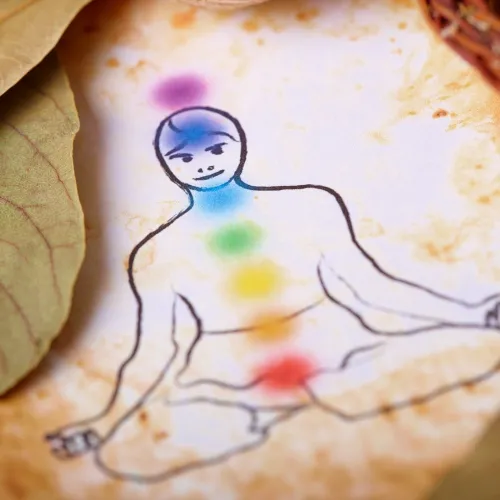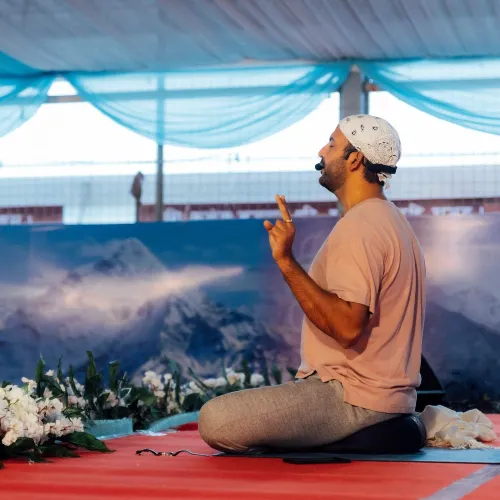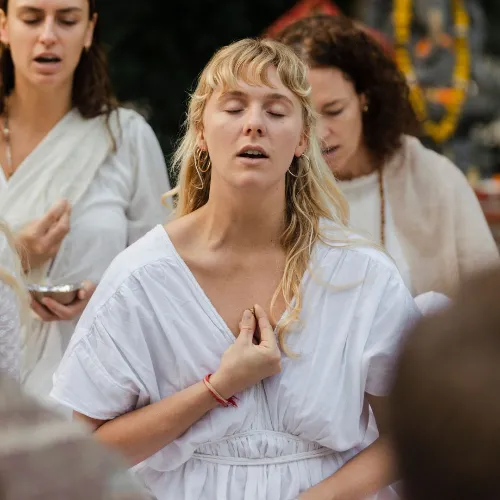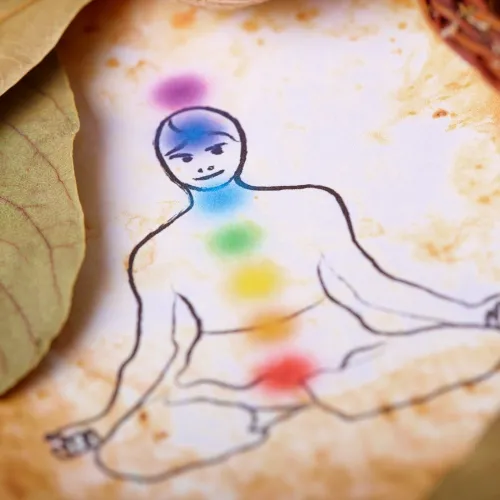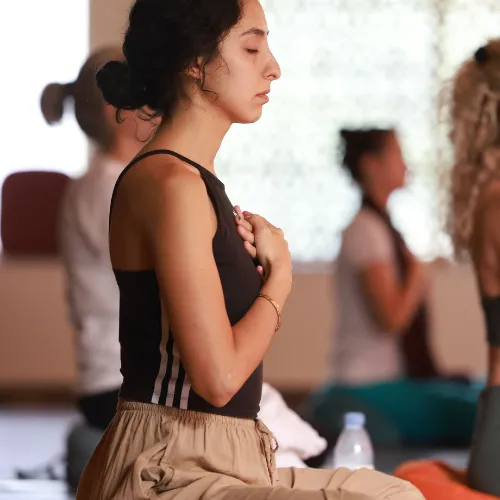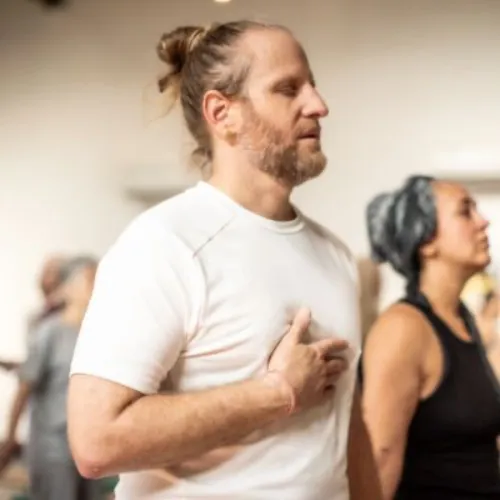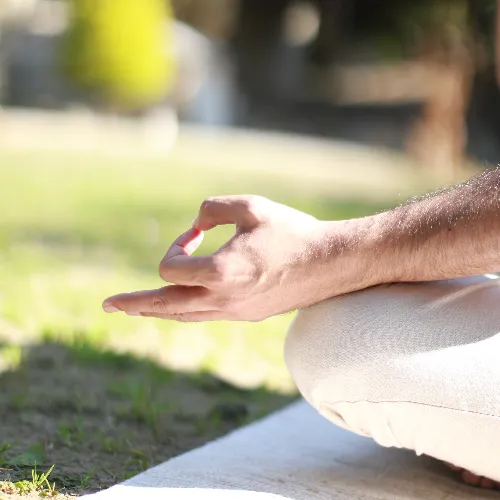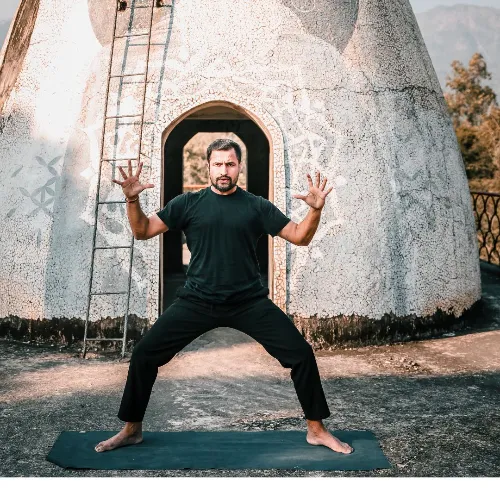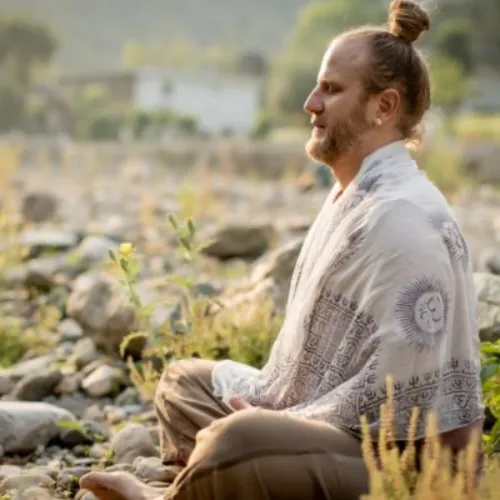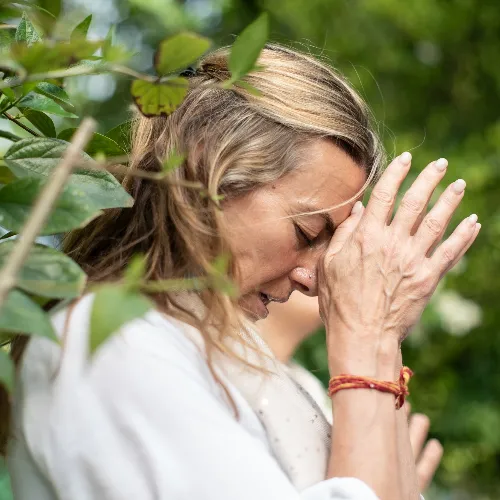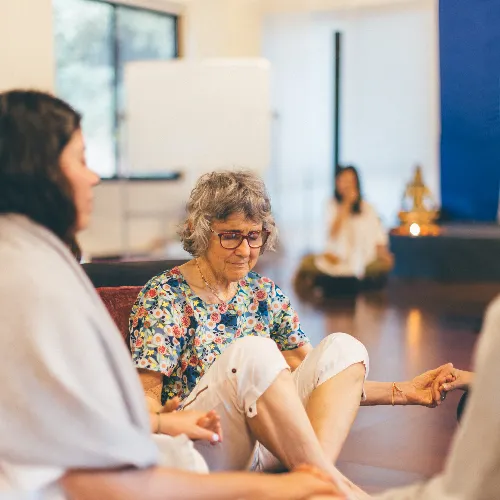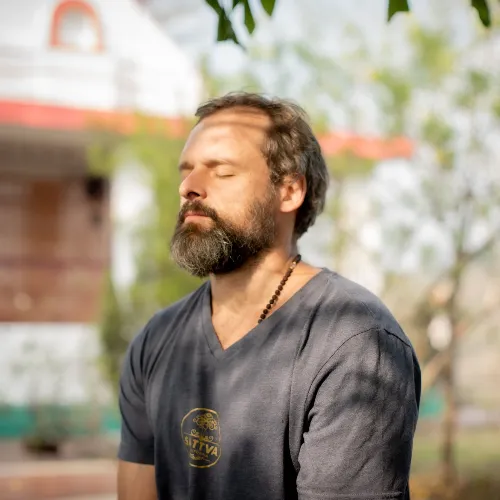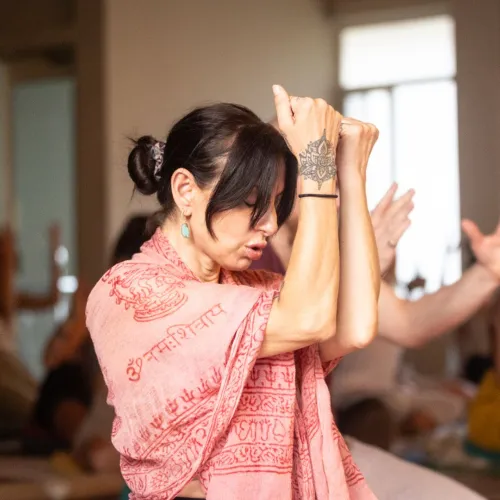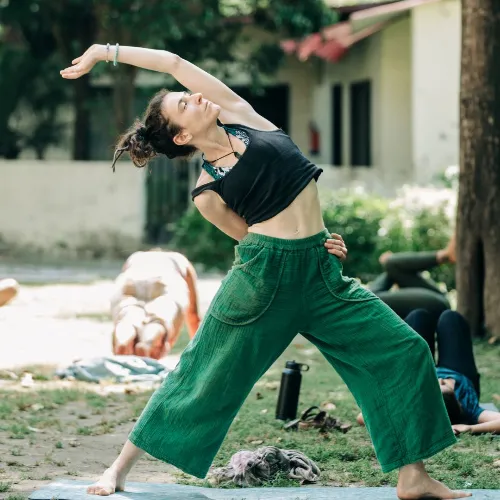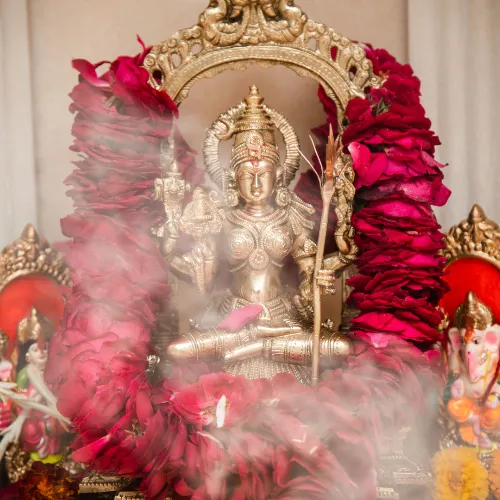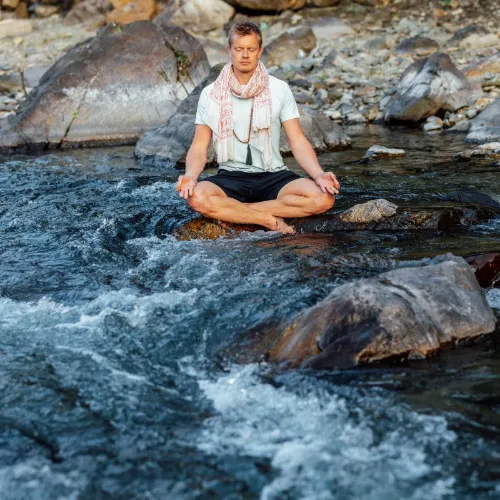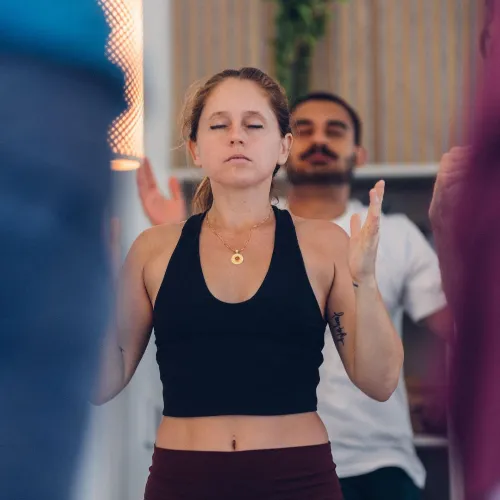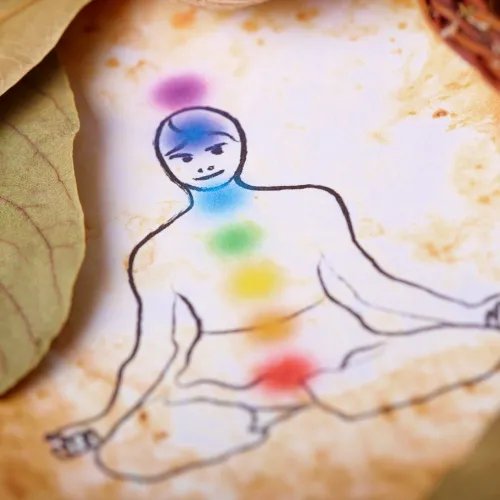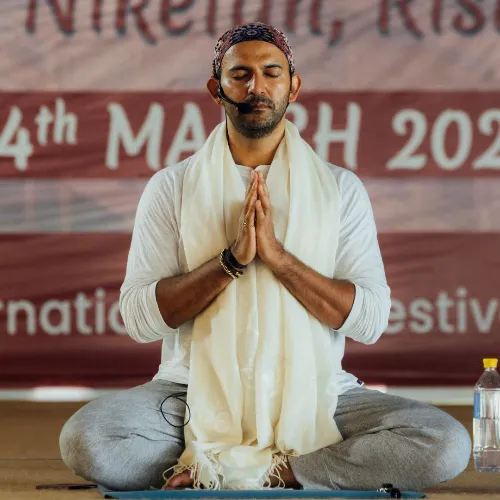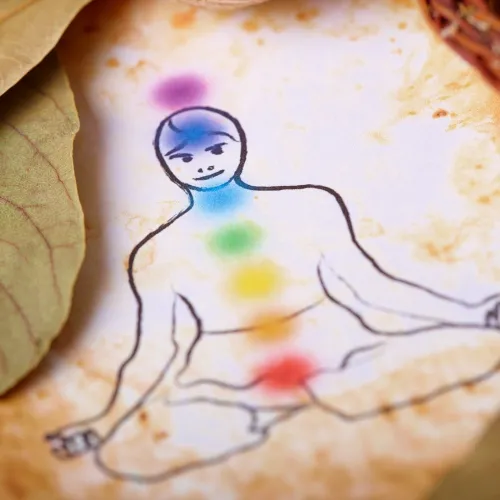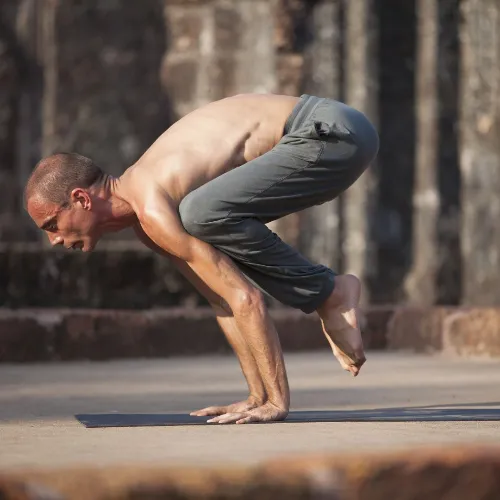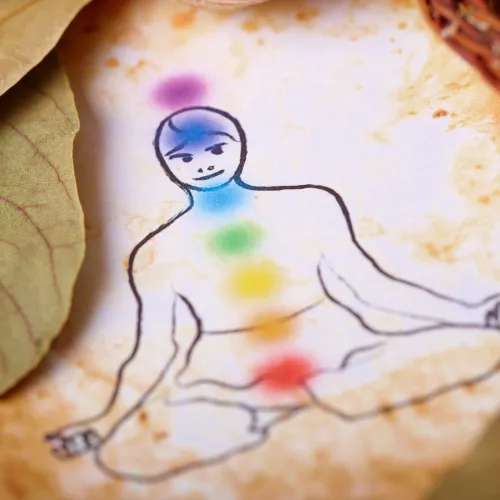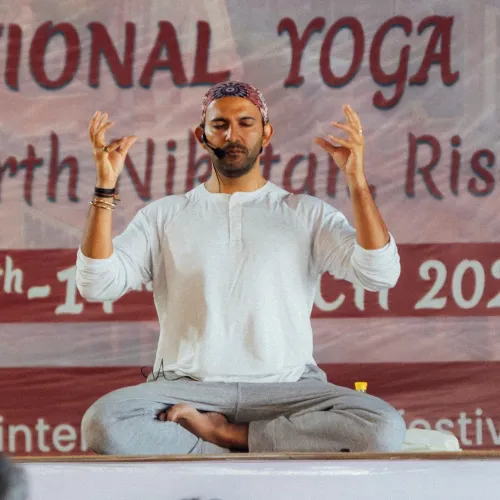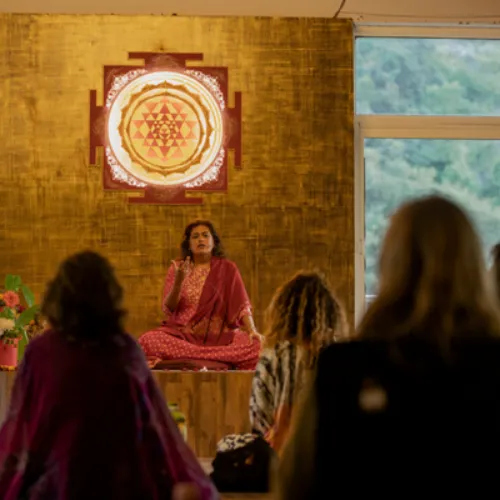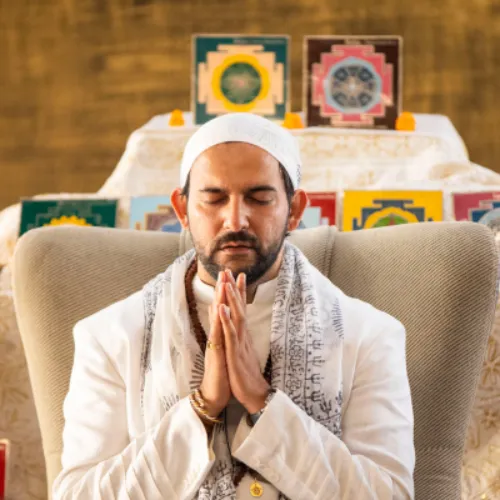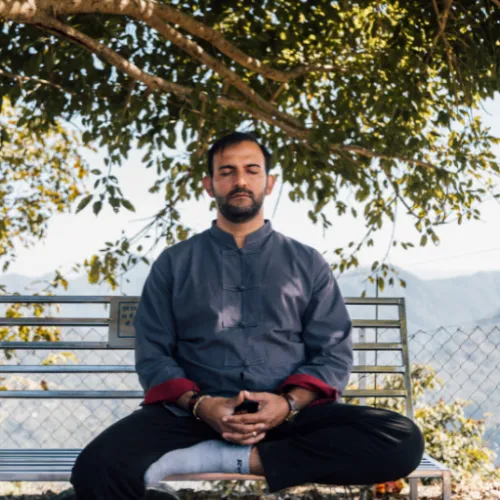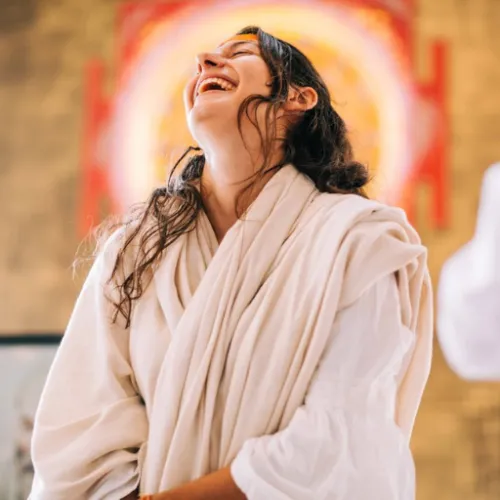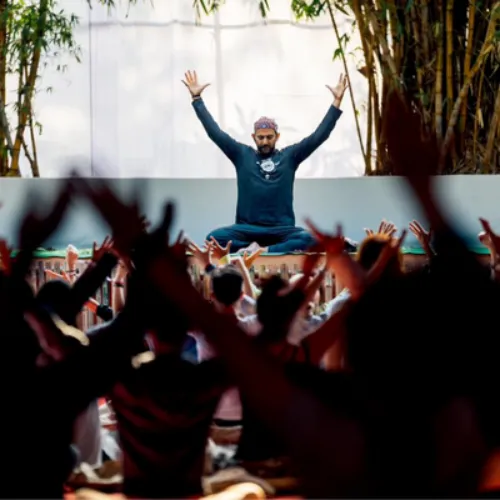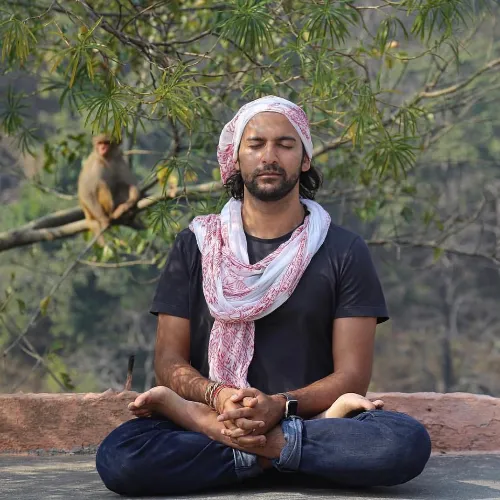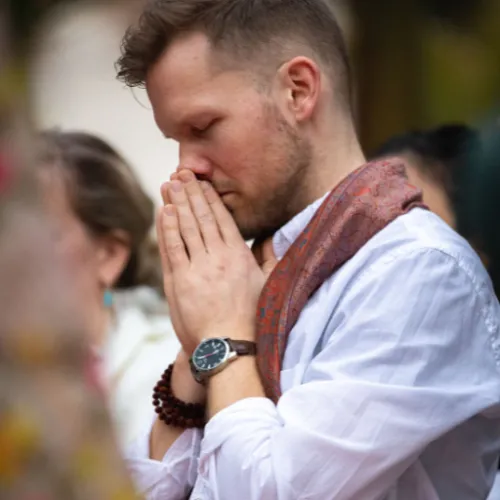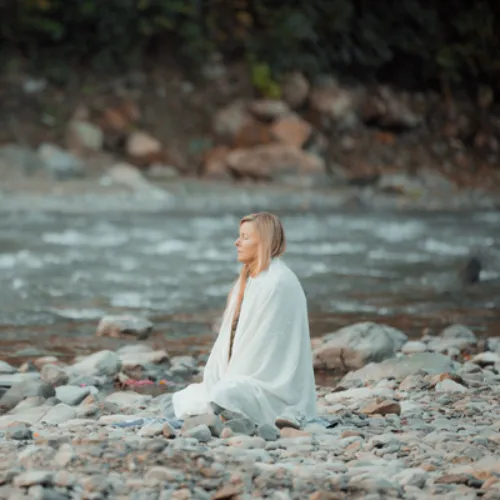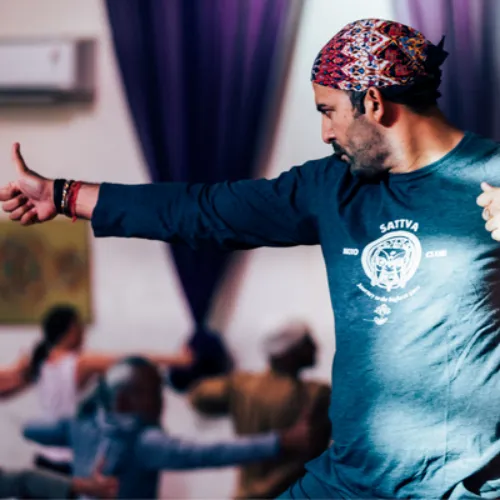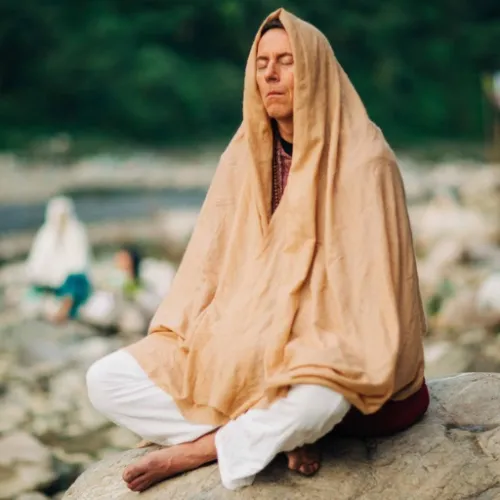


Patanjali’s Yoga Sutras list eight obstacles to enlightenment, challenges we all face on the path of spiritual evolution. These are not unique to any one person; they are shared experiences that arise from dense states of consciousness. As Anand Mehrotra, a Himalayan master, explains, understanding and transcending these obstacles is key to progressing on the path of yoga.
Vyadhi (Sickness)
Vyadhi is often misinterpreted as purely physical illness, but it also refers to a dis-ease of the mind and consciousness. This obstacle reflects a state of unconscious living, where one is disconnected from their inner self — mentally, physically, and spiritually.
Anandji clarifies that physical challenges do not prevent one from practicing yoga. In fact, the holistic approach of yoga can greatly improve one’s health over time. Through consistent practice, even those facing physical or mental difficulties can experience deeper states of awareness and vitality. Vyadhi, then, is not just about physical sickness but a crisis in consciousness or self-awareness.
Styana (Lack of Interest)
Styana is a lack of interest or enthusiasm for personal growth. If one is not truly engaged in their evolution, the desire for practice fades. This obstacle shows up as inconsistency — practicing only sporadically or when it feels convenient. Anandji likens it to brushing your teeth: doing it “sometimes” is not enough.
When there is no deep, ongoing desire for transformation, one’s practice loses its power. Styana represents the tamasic energy that clouds our consciousness and hinders our progress.
Samsaya (Doubt)
Samsaya manifests as doubt — doubt in oneself, in the practice, and in life. It stems from a dense state of consciousness, where fear and anxiety overshadow clarity. In this state, we remain indecisive and unsure, paralysed by self-doubt. According to Anandji, samsaya keeps us from stepping into our full potential. To overcome this, we must cultivate faith in our inner path and trust that the practice will guide us forward.
Pramada (Arrogance/ Absent-Mindedness)
Pramada has two meanings: arrogance and absent-mindedness. In a state of pramada, one lacks alertness and awareness. Anandji explains that arrogance often arises from ignorance, and when combined with a lack of awareness, it becomes a major obstacle. We see this in everyday life, where ignorance is often paired with overconfidence.
Pramada is about losing the humility to be present and open to learning. To overcome it, we must cultivate prajna—a continuous awareness that keeps us grounded and attentive.
Alasya (Lethargy)
Alasya is lethargy or a lack of energy. Instead of cultivating vitality and enthusiasm, one feels drained and unable to engage fully with life or their practice. Anandji explains that lethargy often drives people to seek external stimulants, like energy drinks, to compensate for their lack of vitality.
Patanjali emphasizes the importance of virya—energy— in sutra 20, reminding us that an energy-rich environment is essential for spiritual progress. Through consistent practice, we can transform lethargy into dynamism.
Bhrantidarshana (Illusion)
Bhrantidarshana refers to seeing the world through the lens of illusion. In this state, one is stuck in projections and distorted perceptions of reality.
Anandji describes how individuals can become trapped in their own mental constructs, creating false meanings and narratives that lead to suffering. Through the practice of yoga, we can clear these illusions and see reality as it is.
Bhrantidarshana is a state that can affect anyone, but with awareness and alertness, it can be transcended, allowing us to connect with the truth of existence.
Alabdhabhumikatva (Instability)
Alabdhabhumikatva is the inability to maintain stability in one’s practice or spiritual realisation. Even if we have moments of clarity or growth, dense consciousness can pull us back into instability.
Anandji reminds us not to take this personally, as it is a characteristic of dense consciousness, not a reflection of our true nature. Yoga helps ground us, allowing us to move beyond this obstacle and maintain steadiness in our evolution.
Anavasthitatvani and Chittavikshepa (Unsettled Mind & Distraction)
Anavasthitatvani and Chittavikshepa are closely related obstacles. The first refers to an unsettled state of mind, while the second points to distraction.
Anandji explains that in a dense state of consciousness, it becomes difficult to sit still or simply be with oneself. The individual constantly seeks distractions to avoid facing their inner reality. This leads to a restless, unfocused mind that jumps from thought to thought, creating stress and instability.
Through the practice of yoga, however, we develop the capacity to be fully present with ourselves, reducing the need for external distractions.
Take Home
As Anandji emphasises, these obstacles are not personal failings but simply qualities of a dense state of consciousness. They can be transcended through awareness and a consistent yoga practice.
Patanjali urges us not to judge ourselves when these tendencies arise, but rather to shine the light of awareness on them. As we deepen our practice and move toward subtler states of consciousness, these obstacles will naturally lose their power over us.
To dive deeper into the teachings of Patanjali’s Yoga Sutras, explore Anand Mehrotra’s book This Is That.
